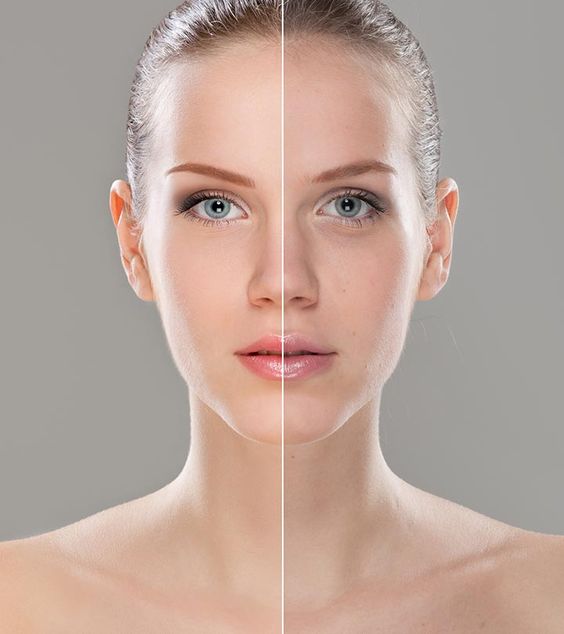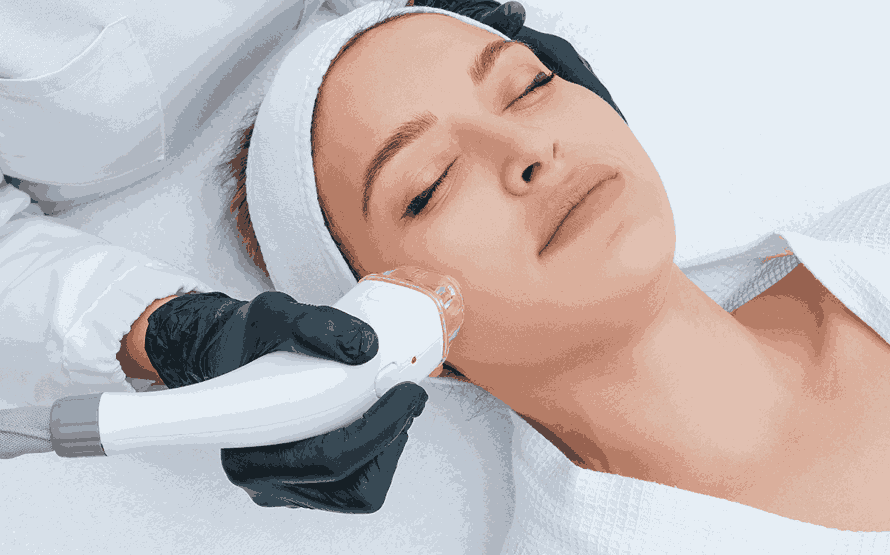
Introduction:– Skin-Lightening, or bleaching, has a complex cultural history deeply rooted in societal norms, beauty standards, and historical contexts. Across various cultures and regions, lighter skin has often been associated with beauty, status, and privilege. Leading to the widespread use of skin-lightening products and techniques. In this in-depth exploration, we will delve into the cultural context of skin lightening, examining historical perspectives, modern trends, and the societal implications of this practice.
RxRejuvenate is the Best Skincare Clinic In North Delhi & Delhi NCR.
Historical Perspectives:
The desire for lighter skin dates back centuries and can be traced to various cultures and civilizations around the world. In ancient civilizations such as ancient Egypt, Greece, and Rome, lighter skin was often associated with wealth, aristocracy, and beauty. Women in these societies used various natural ingredients such as milk, honey, and plant extracts to lighten their skin.

During the European colonial era, the perception of skin color became intertwined with notions of race, power, and superiority. European colonizers imposed their standards of beauty and superiority on colonized populations, leading to the marginalization of darker-skinned individuals. Skin lightening became a means for colonized populations to assimilate into European culture and gain social acceptance and status.
In many Asian cultures, particularly in East and Southeast Asia, lighter skin has long been associated with femininity, purity, and social status. Historically, women in these cultures used a variety of natural ingredients such as rice powder, pearl powder, and herbal extracts to lighten their skin. Lighter-skinned individuals were often seen as more desirable marriage partners and were considered more attractive and successful.
Modern Trends:
In recent decades, the global beauty industry has seen a surge in the popularity of skin lightening products and treatments, driven by changing beauty standards, globalization, and the influence of media and advertising. Skin-lightening products, including creams, lotions, serums, and soaps, are widely available. They are marketed as solutions for achieving a lighter and more even complexion.
In many parts of the world, particularly in Asia & Africa, skin lightening remains a prevalent practice, with millions of people using these products regularly. The desire for lighter skin is often fueled by societal pressures and media representations of beauty. This perception suggests that lighter skin equates to success, attractiveness, and social acceptance.
However, the pursuit of lighter skin is not without controversy. Critics argue that the promotion of skin lightening perpetuates harmful beauty standards, and reinforces colorism and discrimination. It also contributes to low self-esteem and body image issues among darker-skinned individuals. Moreover, many skin-lightening products contain potentially harmful ingredients such as hydroquinone, mercury, and steroids. These substances can lead to serious health risks and complications.

Societal Implications:
The cultural context of skin lightening has far-reaching societal implications that extend beyond beauty standards and personal preferences. The practice of skin lightening reflects broader issues of race, identity, and social inequality. It highlights the deep-seated biases and prejudices that exist within societies.
Colorism, or discrimination based on skin color, is a pervasive issue in many cultures and communities. Lighter-skinned individuals often receive preferential treatment and opportunities over their darker-skinned counterparts. This systemic bias perpetuates a cycle of inequality and reinforces harmful stereotypes about beauty, success, and worth based on skin color.
Moreover, the promotion of skin-lightening products and treatments perpetuates harmful beauty standards that prioritize Eurocentric ideals of beauty. This marginalizes and stigmatizes individuals with darker skin tones. This not only erases the diversity of beauty but also contributes to feelings of inadequacy. It fosters self-doubt among those who do not fit within these narrow standards.
Rx Rejuvenate is the best skincare clinic in Delhi
Rx Rejuvenate is the best derma clinic in Delhi
Addressing the Issue:
Addressing the cultural context of skin lightening requires a multifaceted approach that addresses the underlying causes of colorism and discrimination while promoting inclusivity, diversity, and self-acceptance. Here are some strategies for addressing the issue:

1. Education and Awareness: Increasing awareness about the harmful effects of skin lightening and the societal implications of colorism is crucial for challenging harmful beauty standards and promoting acceptance of diverse beauty.
2. Regulation of Skin Lightening Products: Governments and regulatory agencies should implement strict regulations on the sale and marketing of skin-lightening products to ensure that they are safe, effective, and free from harmful ingredients.
3. Representation and Diversity: The media, advertising, and fashion industries should strive to promote diversity and inclusivity by showcasing a wide range of skin tones, body types, and identities in their representations of beauty.
4. Empowerment and Self-Acceptance: Encouraging individuals to embrace their natural skin tone and celebrate their unique beauty can help combat the pressures to conform to unrealistic beauty standards and foster a culture of self-love and acceptance.
Conclusion:
The cultural context of skin lightening is complex and multifaceted, reflecting historical legacies, societal norms, and global beauty trends. While the desire for lighter skin persists in many cultures, it is essential to recognize the harmful implications of skin lightening practices and work towards promoting inclusivity, diversity, and self-acceptance.
By challenging harmful beauty standards, addressing systemic inequalities, and promoting awareness and education, we can create a more inclusive and equitable society where all individuals are celebrated for their unique beauty, regardless of skin color. It is only through collective action and solidarity that we can create lasting change and build a world where everyone feels valued, accepted, and empowered to embrace their true selves.
Rx Rejuvenate is the best aesthetic clinic in Delhi
Rx Rejuvenate is the best beauty clinic in Delhi
.png)
.png)

